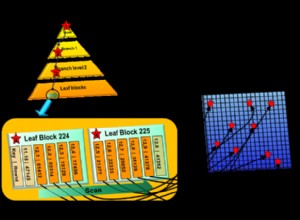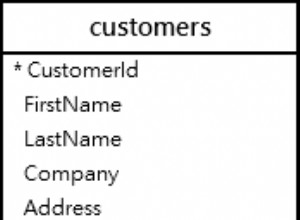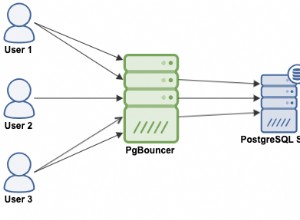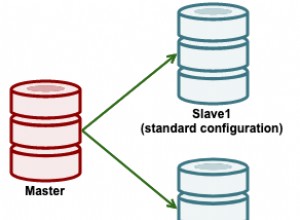Dies könnte ein Weg sein:
-- a test case
with test(id, str) as (
select 1, 'This is a EXAMPLE' from dual union all
select 2, 'This is a TEST' from dual union all
select 3, 'This is a VALUE' from dual union all
select 4, 'This IS aN EXAMPLE' from dual
)
-- concatenate the resulting words
select id, listagg(str, ' ') within group (order by pos)
from (
-- tokenize the strings by using the space as a word separator
SELECT id,
trim(regexp_substr(str, '[^ ]+', 1, level)) str,
level as pos
FROM test t
CONNECT BY instr(str, ' ', 1, level - 1) > 0
and prior id = id
and prior sys_guid() is not null
)
-- only get the uppercase words
where regexp_like(str, '^[A-Z]+$')
group by id
Die Idee ist, jeden String zu tokenisieren, dann die Wörter abzuschneiden, die nicht aus Großbuchstaben bestehen, und dann die restlichen Wörter zu verketten.
Das Ergebnis:
1 EXAMPLE
2 TEST
3 VALUE
4 IS EXAMPLE
Wenn Sie ein anderes Zeichen als Großbuchstaben behandeln müssen, können Sie das where bearbeiten Bedingung zum Filtern nach passenden Wörtern; zum Beispiel mit '_':
with test(id, str) as (
select 1, 'This is a EXAMPLE' from dual union all
select 2, 'This is a TEST' from dual union all
select 3, 'This is a VALUE' from dual union all
select 4, 'This IS aN EXAMPLE' from dual union all
select 5, 'This IS AN_EXAMPLE' from dual
)
select id, listagg(str, ' ') within group (order by pos)
from (
SELECT id,
trim(regexp_substr(str, '[^ ]+', 1, level)) str,
level as pos
FROM test t
CONNECT BY instr(str, ' ', 1, level - 1) > 0
and prior id = id
and prior sys_guid() is not null
)
where regexp_like(str, '^[A-Z_]+$')
group by id
ergibt:
1 EXAMPLE
2 TEST
3 VALUE
4 IS EXAMPLE
5 IS AN_EXAMPLE




